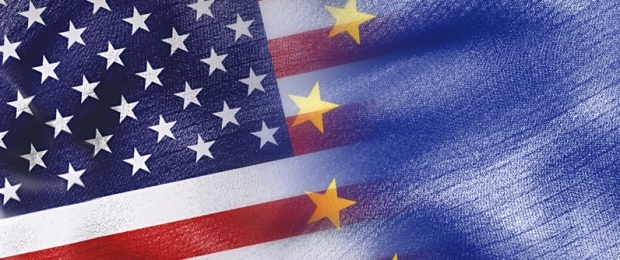
Clear skies across the Atlantic
When asked recently by the chairman of the UK House of Commons Transport Select Committee, 'Is the government's policy towards aviation a UK policy or a European one?', Alistair Darling, the transport secretary, slightly sheepishly acknowledged, 'Sometimes it's one, sometimes it's the other.'
This dilemma has taxed the EU for much of the last decade. The Commission has long pushed a liberalising agenda, claiming that increased competition especially on the lucrative transatlantic routes is vital to the long-term health of the European airline industry. The Commission has also demanded the power to negotiate an 'open skies' deal, liberalising transatlantic air routes, directly with the US. But the EU member-states remain reluctant to cede powers over an industry that is so closely associated with national security, identity, international trade and tourism.
The US government is in part to blame for this problem. Since the early days of the Clinton administration, the US has pursued an aggressive policy of signing bilateral open skies agreements, including with 11 EU member-states. Four countries (including the UK) continue to operate even more restrictive bilateral deals which limit transatlantic capacity. However, the US and the European Commission have interpreted the purpose of the open skies agreements in very different ways. The US is mainly concerned with liberalising transatlantic flights: which carriers fly which route and when. In contrast, the European Commission has called on the US to open up its domestic market to more competition and drop the laws restricting foreign ownership of US airlines.
The Commission argues that aviation is a key part of the EU's single market and that it, rather than the member-states, should have the power to negotiate the open sky deals. Neil Kinnock, the then transport commissioner, began campaigning nearly a decade ago for the Commission to have such power. The Commission backed up its campaign by taking member-states to court in 1998 over existing bilateral deals. The Commission argued that member-states were undermining the principles of the single market by dealing directly with Washington. In 2002, the European Court of Justice ruled that the bilateral deals did breach EU law.
The September 11th terrorist attacks and the global economic slowdown have taken a heavy toll on the airline industry. Loyola de Palacio, the current transport commissioner, has seized the opportunity to put forward a new pan-European vision of the airline industry. The Commission is now stressing not only the need for a new EU-wide deal with the US, but also for industry consolidation, the modernisation of air traffic control systems, and for airline regulation to take greater account of environmental issues.
The Commission's approach is partly visionary, and partly highly practical. On the one hand, the Commission has grasped what the industry itself has denied for years that airlines must consolidate and national carriers can no longer expect special favours. Competition, rather than national pride, should determine the size of the industry. The Commission is determined to restrict state handouts that prop up failing airlines. EU-based airlines will be unable to challenge the dominance of US carriers unless they benefit from economies of scale in a single European air market.
The Commission is also determined to close an anachronistic loophole, which has meant that aviation regulated by the 1944 Chicago Convention and excluded from most multilateral trade agreements is the only international trade sector where it has no powers. In June 2003, EU governments agreed to a compromise: the Commission will have the power to negotiate a single agreement with the US, but member-states will continue to strike deals with other countries.
Officially, the US government is happy to negotiate a single deal with the EU. In practice, however, the administration is unlikely to want to rush to the table. The existing bilateral treaties have worked well. Moreover, US carriers are in such a weak financial position that they are likely to fiercely resist further liberalisation measures.
Two major carriers (US Air and United) have already filed for bankruptcy. The Air Transport Association in the US predicted in early March that a war with Iraq could cost $10 billion and lead to the loss of around 70,000 jobs. This worst-case scenario may have proven unfounded, but no one is predicting an easy time for the carriers in the near future. Shares in airlines continue to struggle and investors are very nervous about future prospects, as are consumers, who want stability and choice.
Yet the Commission seems determined to force the pace of airline liberalisation. It is calling on member-states to renounce their existing US deals. However, the US and the EU member-states do not want to abrogate the agreements before a full transatlantic open skies deal is signed. Everyone but the Commission agrees that this would be a recipe for air transport chaos.
The Commission should not insist on a 'big bang' approach and attempt to speed up the negotiating timetable by forcing member-states to renounce all existing agreements. The US will eventually negotiate directly with the EU. But the European Commission's efforts to rush to reach an agreement could delay the start of talks. Finding someone in the Beltway who thinks there will be a deal in less than three or four years is harder than finding a liberal in the Pentagon. There will be open skies over the Atlantic, but if you're a gambling person, bet your money on something else in the meantime.
